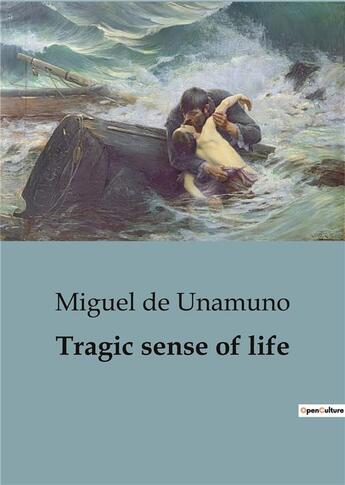Résumé:
In Tragic Sense of Life, Miguel de Unamuno, one of Spain's most important philosophers and writers of the 20th century, provides a profound exploration of existentialist thought. Unamuno's unique brand of existentialism grapples with fundamental questions about life, death, faith, and... Voir plus
In Tragic Sense of Life, Miguel de Unamuno, one of Spain's most important philosophers and writers of the 20th century, provides a profound exploration of existentialist thought. Unamuno's unique brand of existentialism grapples with fundamental questions about life, death, faith, and identity.
The book presents an introspective journey into the human soul, delving into our constant quest for meaning and the inevitable dread of mortality that accompanies it. Unamuno argues that acknowledging the tragic sense of life, rather than seeking to eliminate it, is vital for truly experiencing and understanding life and spirituality.
Dealing heavily with the themes of human immortality and the struggle for faith, Unamuno's work presents a powerful, intensely personal critique of both established religion and secular humanism. He argues for a more engaged form of personal faith that acknowledges the profound mystery and uncertainty of existence.
Tragic Sense of Life is an intellectual tour-de-force, as poignant as it is insightful. It's a deeply philosophical and existential work that grapples with some of life's most challenging questions, exploring the human condition in a unique and powerful way.
Keywords: Miguel de Unamuno, Tragic Sense of Life, existentialism, human condition, mortality, faith, identity, immortality, personal faith, religion, secular humanism, philosophy, Spanish philosophy, 20th century, existential thought, introspective journey, quest for meaning, existentialist philosophy, Spanish literature, existential thought, human condition, exploration of faith, philosophical critique, immortality, personal faith, exploration of identity, profound existentialism, human struggle, mortality, meaning of life, classic philosophical works, 20th-century philosophy.









